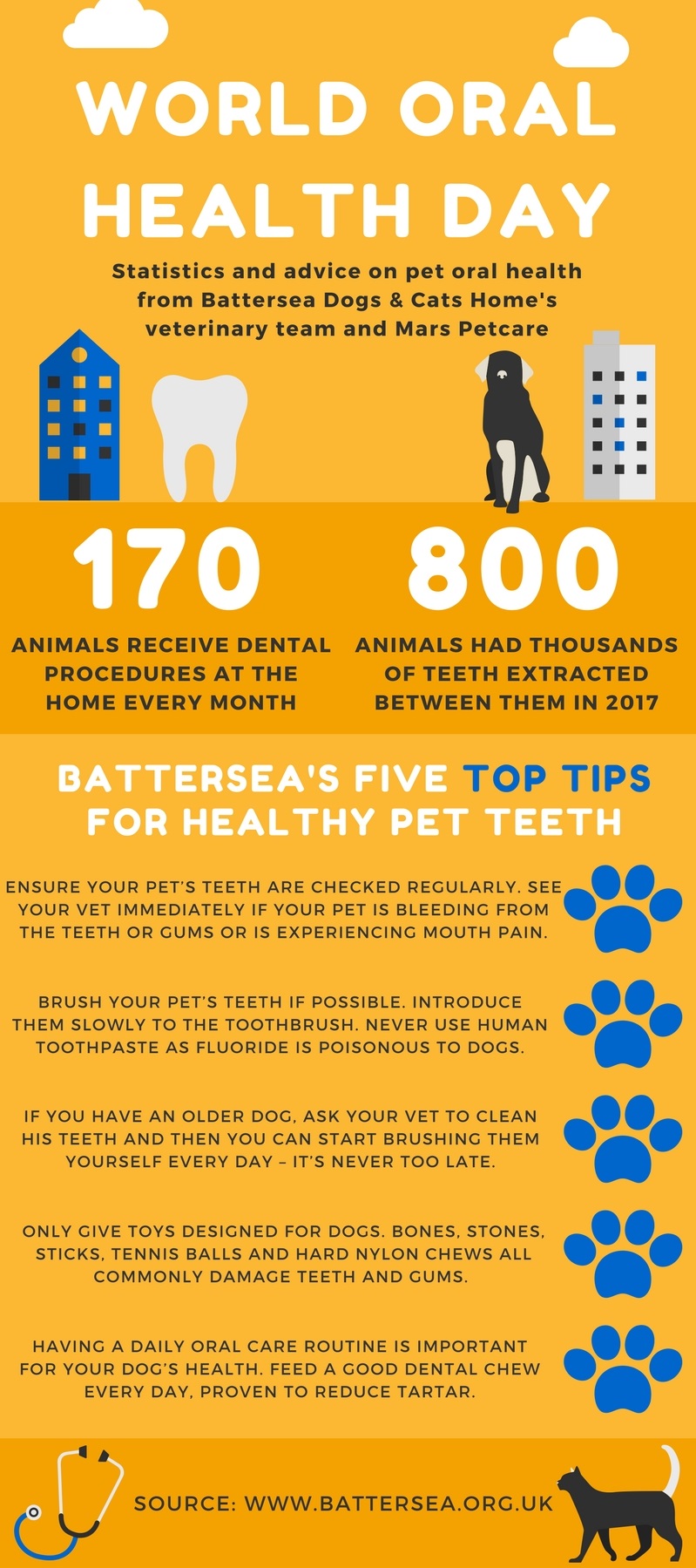In the wake of World Oral Health Day last week, two veterinary surgeons offered their top tips for how owners can best protect their pet’s teeth.
Tooth-brushing with specialist toothpaste is the best form of dental treatment for pets according to two of the country’s most well-known veterinary centres in the week of World Oral Health Day.
Battersea Dogs & Cats Home and the Royal Veterinary College both advised pet owners to introduce daily tooth-brushing for their dogs and cats.
Claire Turner, 32, works as a veterinary surgeon at Battersea and emphasised the importance of brushing for an animal’s overall health.
“The absolute best thing you can do to look after your pet’s teeth is to brush them daily. If this is something you haven’t done before then obviously you want to build it up very very slowly,” she said.
“You can get finger brushes, using a special dog or cat toothpaste which has got less fluoride in it because the human ones are no good for them.”
This was a view echoed by Louise Allum, the Head Veterinary Surgeon in the Royal Veterinary College’s Shelter Medicine Program.
She said: “Toothbrushing is always seen as the best way to take care of dog’s teeth but not always easy to do.
“Dental stick treats work well for some dogs but you have to watch the calorie count if your pet is on a special diet!
“Be careful with very hard treats as these can often cause more damage than good. A favourite saying from a dental specialist is: if you can’t bend it, bin it!”
Both Claire and Louise highlighted short-faced dogs, the brachycephalics, are prone to dental disease with trapped food and debris.
While at the other end of the scale, greyhounds and other long-faced breeds are at risk due to tartar and stone chewing.
Statistics released on World Oral Health Day (March 20) showed Battersea perform 170 dental procedures every month and last year thousands of teeth were collectively removed from over 800 animals.
Claire said: “The second-most common procedure we do is dentistry so it’s really apt that in World Oral Health Week we are discussing the importance of looking after our pet’s teeth.
“About a third of animals that come to us will need some dental treatments so it’s quite a large part of what we do.”
Battersea, alongside their partners Mars Petcare, advise owners to look out for the ‘Three Bs’ of dental health problems: bad breath, bleeding gums and behavioural changes.
But both Battersea and the Royal Veterinary College were keen to highlight one major misconception people have.
Tennis balls are often used by owners for dogs to play with, chase and retrieve but the texture of the balls mean they can actually cause long-lasting damage.
“Tennis balls are quite abrasive on the teeth so you will quite often see eroded teeth where it’s acted like sandpaper on the animal and really worn it down, especially the little terriers that are really keen on constantly holding a ball in their mouth,” explained Claire.
“Similarly, sticks are not ideal because they splinter in the mouth and they can cause cuts and stones are very hard. If they crunch down on a stone, that can cause a fracture.
“Go for a rubber ball or a rubber chew toys that are especially built for dogs, those are going to be a lot less abrasive on the teeth.”


